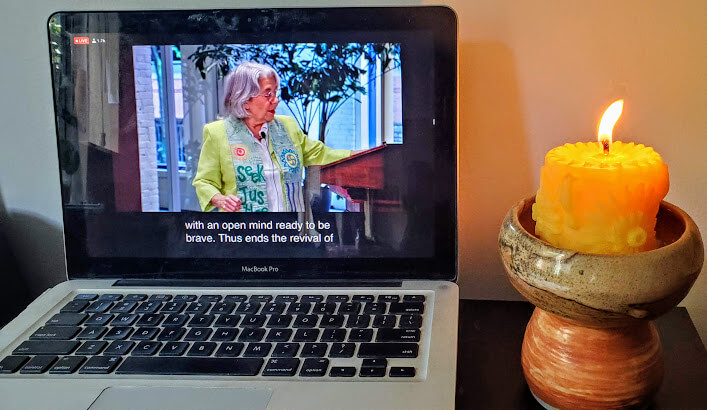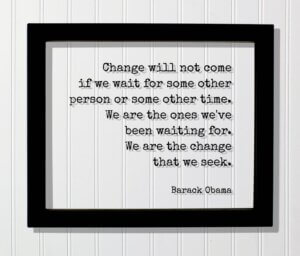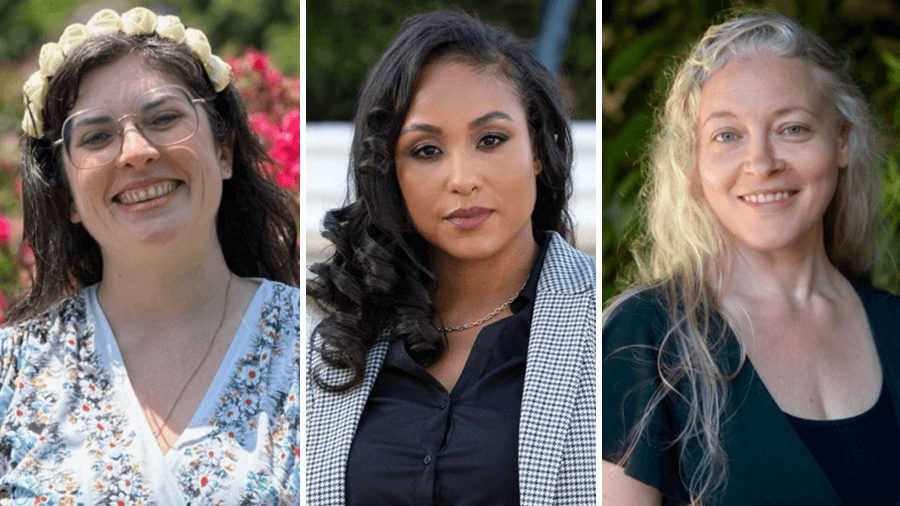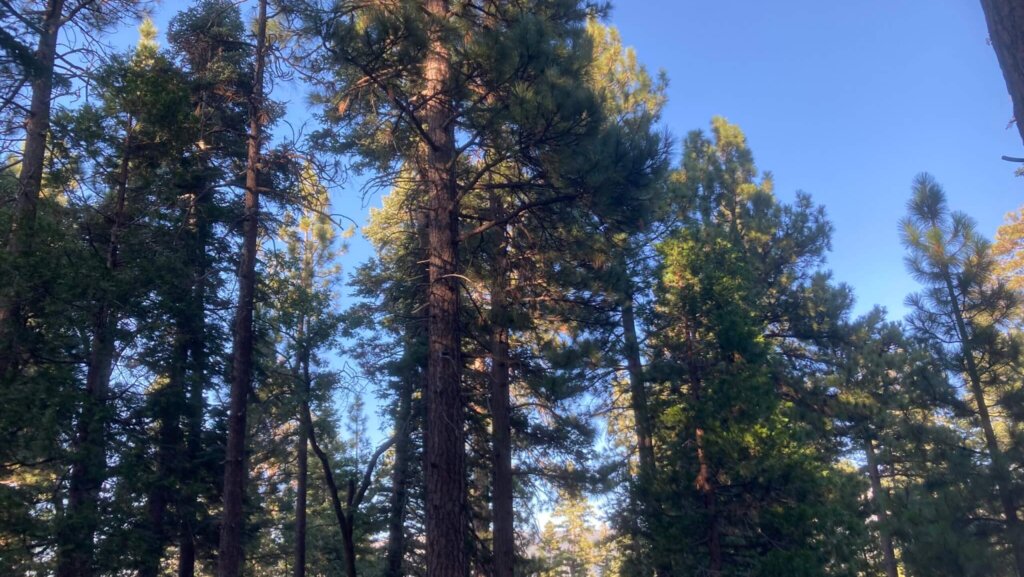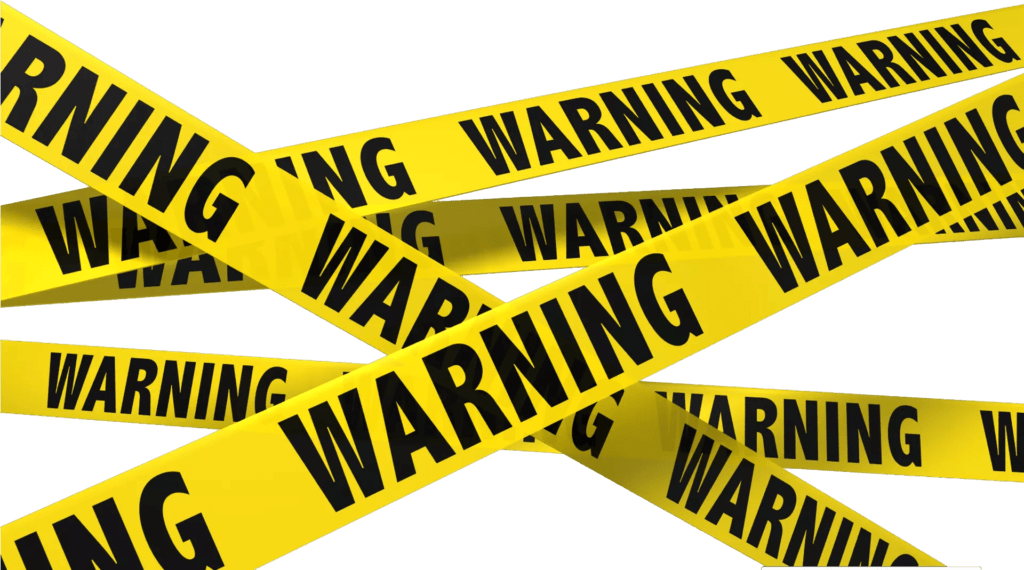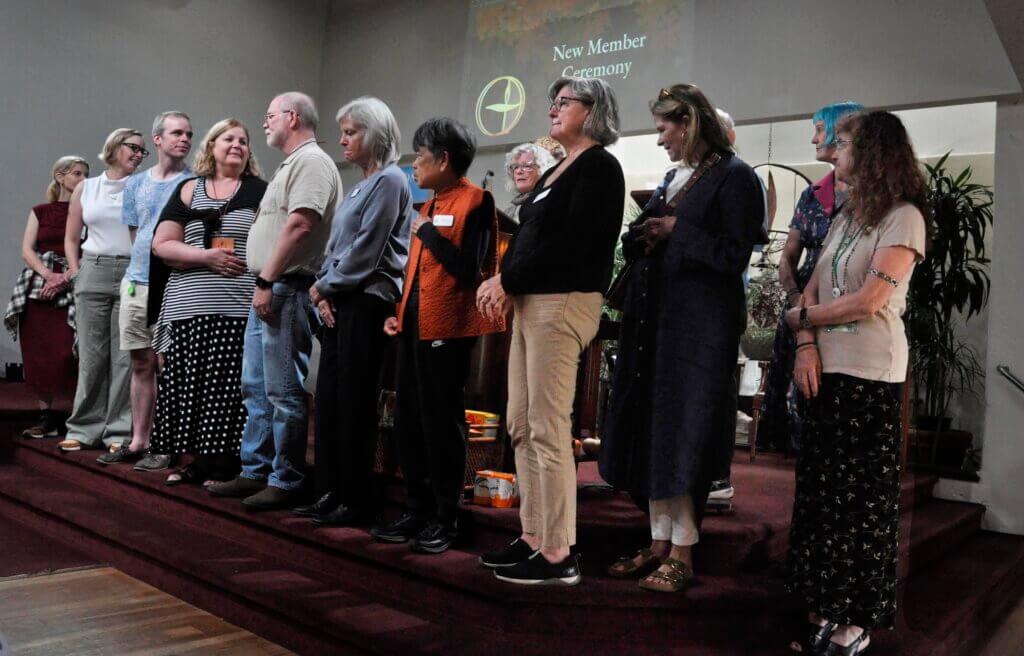By Haley Paddock
As a full-time student during the global pandemic, I hadn’t expected to be able to afford registration to General Assembly (GA). For one reason or another, I haven’t been to GA since 2007, when I attended it in lieu of my high school graduation. Thanks to the support of UU Santa Monica, I was able to apply for and receive a scholarship, and for that I say “Thank you!” As I hope you’ll conclude, I gained a great deal of knowledge and inspiration.
 This year, the Unitarian Universalist Association (UUA) had the difficult task of hosting the 59th annual GA completely virtually. The theme of “Rooted, Inspired, and Ready” set the stage for a program that called us to root ourselves in our shared faith, while inspiring us to learn more about how we, both as individuals and collectively as congregations, can prepare for humanity’s hard work ahead.
This year, the Unitarian Universalist Association (UUA) had the difficult task of hosting the 59th annual GA completely virtually. The theme of “Rooted, Inspired, and Ready” set the stage for a program that called us to root ourselves in our shared faith, while inspiring us to learn more about how we, both as individuals and collectively as congregations, can prepare for humanity’s hard work ahead.
We are living in unprecedented times that have led the world at large to reckon with our true history of colonialism and its lasting effects, in particular on Black, Indigenous and People of Color (BIPOC) communities.
GA’s daily schedule consisted of a morning worship, one or two blocks with choices between 10 workshops, a lecture given by professionals in a given field, specialized worships such as Service of the Living Tradition, opportunities for reflection with other attendees, and some super fun choices on Friday for UU Fun Night! Throughout the five days of amazing programming, I was able to attend 18 sessions. I’d like to share with you those that truly inspired deep introspection for me.
The three broad topics that I focused on were: (1) the effect of colonialism on Indigenous populations; (2) Indigenous peoples’ valuable knowledge of our planet and how to sustainably care for it; and (3) the effects of white power/white nationalism and how to be an ally for change in and outside of our congregations.
The workshops I attended included Colonialism’s Impact on Palestinians and Indigenous North Americans, presented by Nidal Al-Azraq, Kia Bordner, Dina Gilio-Whitaker and Zainab Ramahi; Settler Colonialism and a History of Erasure and Exclusion, presented by Roxanne Dunbar-Ortiz; and the Fahs Lecture: Reflecting on Teachings about Indigenous Peoples, presented by Dr. Jean Mendoza and Dr. Natalie Martinez.
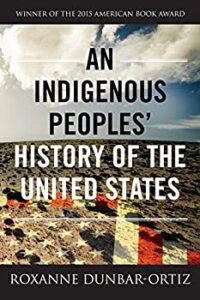 My biggest take-away from these three presentations was that the story Americans have been taught about the country’s founding strays far from the truth. This makes sense since “history is written by the victors.” Activist, writer, and historian Roxanne Dunbar-Ortiz illustrated this point with the revisionist history she lays out so thoroughly in her book “An Indigenous Peoples’ History of the United States,” published by our own Beacon Press in 2014. I highly recommend this book, which my spouse is almost halfway through and can’t seem to put down. Without taking a hard look at history from the perspective of the oppressed, we are unable to to truly confront the situation we’ve inherited.
My biggest take-away from these three presentations was that the story Americans have been taught about the country’s founding strays far from the truth. This makes sense since “history is written by the victors.” Activist, writer, and historian Roxanne Dunbar-Ortiz illustrated this point with the revisionist history she lays out so thoroughly in her book “An Indigenous Peoples’ History of the United States,” published by our own Beacon Press in 2014. I highly recommend this book, which my spouse is almost halfway through and can’t seem to put down. Without taking a hard look at history from the perspective of the oppressed, we are unable to to truly confront the situation we’ve inherited.
Having a deeper understanding of Indigenous history opens up a window into the vast knowledge these communities have about our world. To gain better insight, I attended Indigenous Knowledge in a Time of Coronavirus, presented by Dina Gilio-Whitaker, and Indigenous Resistance: NoDAPL Political Prisoners Create Climate Justice, presented by Leoyla Cowboy Giron, Little Feather Giron, and Rev. Karen Van Fossan. Little Feather Giron is a former political prisoner, only recently released. Of the four others arrested and imprisoned with him, one remains in prison today.
The latter workshop interrogated how “colonialism criminalizes indigenous resistance.” Little Feather and his spouse Leoyla were left with few resources after his arrest, and were offered support by the UU community, including housing in the home of UU congregants, until they were able to afford rent on their own. Now they are working toward building their own dwelling on Indigenous land. Little Feather and Leoyla discussed deepening decolonizing work by returning land to Indigenous tribes from whom it was stolen.
While there were no hard and fast answers as to how to make such reparations, it is a critical conversation. A UU congregation went to the length of contacting a tribal council and paying a land tax to the tribe as a way to further the work of decolonization. I wonder, how can our congregation, built on Chumash/Tongva land, work toward this same goal? How can we lift up these subjugated voices? If you’d like to donate directly to Little Feather and Leoyla to support their efforts to lay the foundation for their dwelling, you can send a donation directly to them, as we did, via Venmo @Mike-Littlefeather, which handle was given and verified during the live workshop.
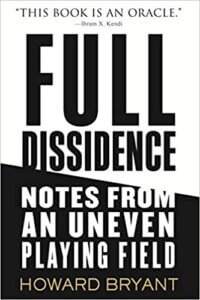 Finally, I explored the white power/white nationalism and allyship topic through the workshops Building Communities to Counter White Nationalism/White Power, presented by Rev. Chris Rothbaur, Fr. Sharon Welch and Andrew J. Mackay; Hospitality, Reparations and Our First Principle, presented by Cir L’Bert Jr, Rev. Keith Kron, Rev. Patrice Curtis, Minister Ari Merretazon and Woullard Lett; and Rooted in Repair, presented by Minister Ari Merretazon, Carl McCargo and Woullard Lett. I also attended a lecture by Howard Bryant, author of the book “Full Dissidence: Notes from an Uneven Playing Field.”
Finally, I explored the white power/white nationalism and allyship topic through the workshops Building Communities to Counter White Nationalism/White Power, presented by Rev. Chris Rothbaur, Fr. Sharon Welch and Andrew J. Mackay; Hospitality, Reparations and Our First Principle, presented by Cir L’Bert Jr, Rev. Keith Kron, Rev. Patrice Curtis, Minister Ari Merretazon and Woullard Lett; and Rooted in Repair, presented by Minister Ari Merretazon, Carl McCargo and Woullard Lett. I also attended a lecture by Howard Bryant, author of the book “Full Dissidence: Notes from an Uneven Playing Field.”
I was terrified by what was presented regarding the rise of white nationalism/white power, and came to understand that there is a systematic way in which hate is being spread, especially among young people who identify as white. This is happening particularly on college campuses across the country, as these groups “utilize liberal language about free speech to gain a platform and propagate their message.” The presenters discussed the diligent work that must be done in identifying and dismantling white nationalism within our own communities.
Our first principle, the belief in the inherent worth and dignity of every person, cannot hold true without action. What do our congregations do to ensure that BIPOC individuals are not only welcomed, but also embraced and truly represented? Why is it that we have seen many BIPOC people walk through our doors and choose not to return? How can the UUA reckon with the Black Empowerment Controversy of 1967-70? Again, these are questions that take deep congregational introspection to answer. I have included a link to a presentation from GA 2009 at the end of this article if you are interested in learning more about demographic changes and other aspects that contributed to the 1967-70 UU controversy.

Needless to say, this General Assembly was as inspiring as any in-person event could have been. There are so many more events I attended about which I’d love to go into great detail — like the Rooted, Inspired, and Ready…For a UU Drag Show presentation for UU Fun Night! And award-winning journalist Naomi Klein’s Ware Lecture regarding the current climate crisis and the importance of passing a Green New Deal.
It truly was five days packed full of quality presentation accented by a powerful sense of community. As for what we will be doing on a personal level going forward, we are taking time to re-educate ourselves with books published by Beacon Press (I’ve shared our current reading list below). We are having important conversations with others who desire to revision history as a means to avoid repeating it. Here is an invitation to join the conversation, because we are the ones. We are the ones we’ve been waiting for.
Our self-curated reading list includes:
- “Indigenous Peoples’ History of the United States,” by Roxanne Dunbar-Ortiz
- “A Disability History of the United States,” by Kim E. Nielsen
- “As Long As Grass Grows: The Indigenous Fight for Environmental Justice, From Colonization to Standing Rock,” by Dina Gilio-Whitaker
- “A Queer History of the United States,” by Michael Bronski
- “Lift Us Up, Don’t Push Us Out! Voices from the Front Lines of the Educational Justice Movement,” by Mark R. Warren.
- “Full Dissidence: Notes from an Uneven Playing Field,” by Howard Bryant
- It Happened the Way it Had to Happen: https://www.uua.org/ga/past/2009/happen
…and just for fun!
Angel DeVida drag performance: https://www.instagram.com/tv/CAe-1BvD5wE/?utm_source=ig_web_copy_link
Dyna With A D drag performance: https://www.instagram.com/tv/CANqDmBp9_d/?utm_source=ig_web_copy_link

